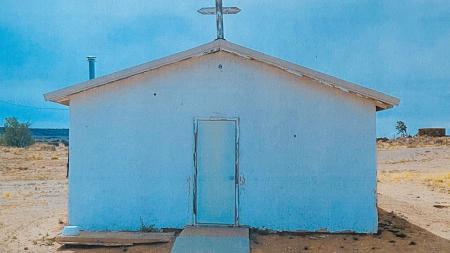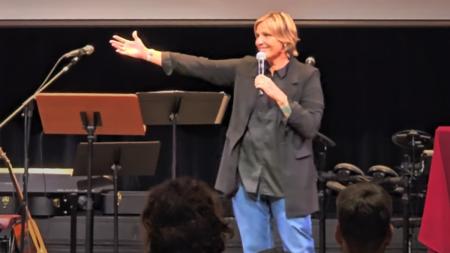Synod 2015 to Review Preliminary Report on Religious Persecution

Ruth Veltkamp (left) is a member of the committee studying persecution. Kevin den Dulk is chair. Joshua Nederhood has done research.
Chris Meehan
The Christian Reformed Church's preliminary report on religious persecution and liberty that is going to Synod 2015 finds that the CRC has an unusually large international field staff in comparison to other denominations.
Contained in the agenda for Synod 2015, the seven-page preliminary report from the denomination’s Committee to Study Religious Persecution and Liberty also finds that the CRC's missionaries and development workers are facing some serious challenges.
That is because CRC field staff members are at work in "hostile landscapes," including Eastern Europe and parts of Africa and Asia, where persecution and threats to liberty are on the rise.
"In whatever form — traditional evangelistic missions, development work, media ministry — this physical presence has exposed people and infrastructure in many regions to threat that lack robust protections for religious expression," says the report.
Synod is meeting from June 12-18 at Dordt College in Sioux Center, Iowa. Synod 2016 will have the chance to review the committee's full report
Kevin R. den Dulk, chair of the study committee and a political science professor at Calvin College, recently spoke to a group in the CRC’s Grand Rapids office, giving a preview of the report and sketching the ongoing work his committee is doing.
In his presentation, he highlighted results of a survey titled "Religious Persecution and the CRC" that he and two of his students, Joshua Nederhood and Jenny Lamb, have conducted.
"We have found that the CRC has an outsized footprint in the number of staff that it has in the field compared to the number of CRC members,” he said.
The survey, he said, found that the CRC has 239 missionary and development workers around the world sponsored by only 1,103 churches and 245,217 total members, which equates to one missionary or development worker overseas per 1,026 members.
In contrast, says den Dulk, the Southern Baptist Convention’s 4,733 "appointed field personnel" are supported by 15,735,640 total members (one per 3,324 members) and the United Methodist Church’s 327 "missionaries" (111 of whom serve in the United States), are supported by 7,299,753 domestic members (one per 22,323 members).
"It is important that these stats are self-reported," said den Dulk.
"The students attempted to find apple-to-apple comparisons."
Among other things, the survey finds that about 15 percent of the CRC’s field staff report having faced strong threats in the form of social hostilities, and about 10 percent from government bans on religion, in the areas where they work.
At the same time, the survey finds different denominations take different approaches to this work, with evangelical churches devoting more staff to dealing with issues of religious freedom than do mainline churches.
Meanwhile, mainline churches devote more staff and attention to interfaith matters.
The survey also quotes author Allen Hertzke who notes in his work that churches and faith-based groups are playing an increasingly active role in addressing issues of religious persecution and liberty.
Hertzke says they are doing this because they are “filling a void in human rights advocacy, raising issues previously slighted— or insufficiently pressed — by secular groups, the prestige press, and the foreign policy establishment.”
While the challenges to the faith community are growing internationally, there are also issues that churches in the U.S. and Canada find themselves needing to confront and address, says the preliminary report.
"Even in the United States and Canada, where safeguards for religious liberty have been relatively strong, church leaders and ordinary parishioners have been raising alarms about a gradual erosion in both legal protections and cultural tolerance for faithful Christians," says the preliminary report.
The CRC study committee was formed by of Synod 2013 through an overture submitted by Classis Toronto that stated that religious persecution is an "urgent" and yet "complex" problem around the globe.
The study committee includes academics, clergy, a retired diplomat, and CRCNA ministry partners.
Moving ahead, said den Dulk, they want to talk at greater depth with field staff about the issue of religious persecution. The committee also wants to further refine its definition of what constitutes religious persecution.
In addition, the committee wants to come up with recommendations on ways in which the church can respond to, combat and provide educational resources that address this topic.
"Persecution is indeed an urgent, complex, and comprehensive concern, and the CRCNA has not been immune from its effects," says the preliminary report.
"Our approach has been to ground our discussion in the richness of the biblical narrative and the Reformed tradition. But we also recognize that the modern experience of persecution requires that we adapt and sketch our analysis of the Bible, church history and confessions.
"The goal is to use the resulting framework to prompt the church to take action."


